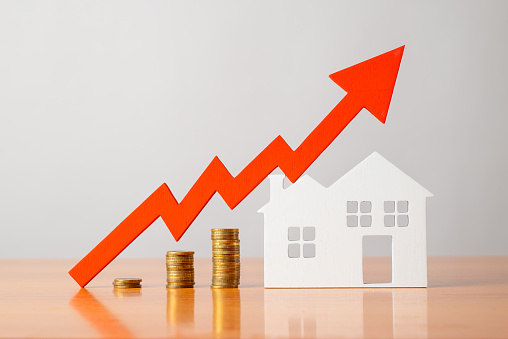Real Estate Investing in a Volatile Market

Real estate investing can be a lucrative venture, but it’s important to be prepared for market volatility. A volatile market is characterized by fluctuations in property prices, economic uncertainties, and changing investor sentiments. However, with the right strategies and mindset, investors can navigate and even capitalize on a volatile real estate market. Here are key considerations for real estate investing in a volatile market:
Research and Analysis:
Thorough market research and analysis are crucial in a volatile market. Stay informed about economic trends, local market conditions, and industry forecasts. Analyze historical data and monitor indicators such as property prices, inventory levels, and rental demand. This knowledge will help identify emerging opportunities and potential risks.
Long-Term Investment Approach: Adopt a long-term investment approach to weather market fluctuations. Semi Detached House values tend to appreciate over time, so focus on the fundamentals of the property rather than short-term price fluctuations. Consider cash flow, location, property quality, and growth potential when evaluating investment opportunities.
Diversification:
Diversification is key to mitigating risks in a volatile market. Instead of putting all your eggs in one basket, consider diversifying your real estate portfolio across different property types, locations, and investment strategies. This spreads your risk and allows for potential gains in various market conditions.
Cash Reserves:
Maintain sufficient cash reserves to navigate through challenging market conditions. Having readily available funds can help you seize investment opportunities that arise during market downturns or take advantage of distressed properties. Cash reserves also provide a safety net to cover unexpected expenses or extended vacancies.
Conservative Financing:
Exercise caution when securing financing in a volatile market. Be mindful of interest rates, loan terms, and potential risks associated with adjustable-rate mortgages or excessive leverage. Ensure that your investment cash flow can cover debt obligations even in the event of market fluctuations or temporary rental vacancies.
Adaptability and Flexibility:
Stay adaptable and flexible in response to changing market conditions. Be open to adjusting your investment strategy, property types, or target markets to align with current trends. This may involve exploring alternative investment strategies such as short-term rentals, property development, or niche markets.
Network and Professional Guidance:
Build a strong network of real estate professionals, including agents, brokers, and property managers. Their expertise and insights can be invaluable in navigating a Real Estate Investing in a Volatile Market. Stay connected with industry associations, attend networking events, and seek advice from experienced investors who have successfully weathered market cycles.
Focus on Value-Add Opportunities:
Look for value-add opportunities that can generate income and increase property value regardless of market conditions. Renovations, property upgrades, or repositioning strategies can enhance the appeal of your investment and attract tenants or buyers even during uncertain times.
Patience and Discipline:
Maintain patience and discipline in a volatile market. Avoid making impulsive decisions based on short-term market fluctuations. Stick to your investment plan and focus on the long-term goals you’ve set. Market cycles will inevitably change, and patient investors who stay the course often reap the rewards.




